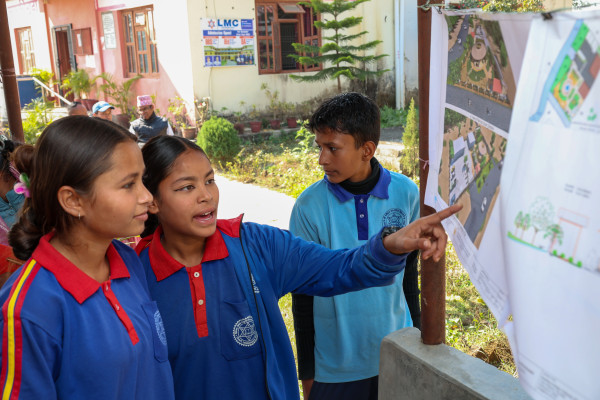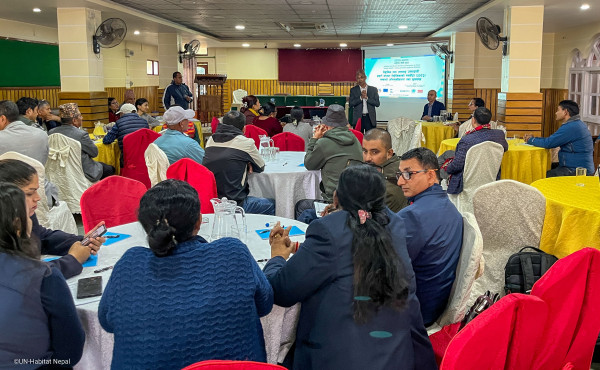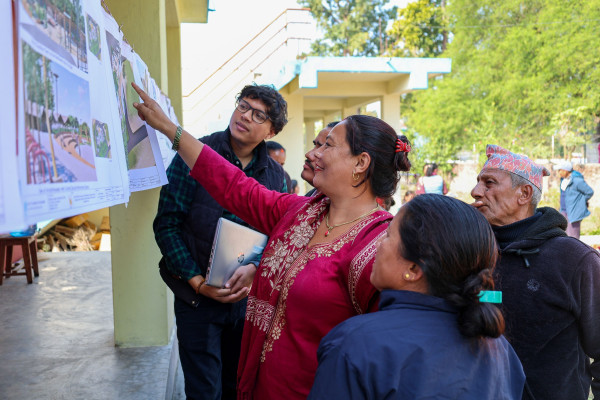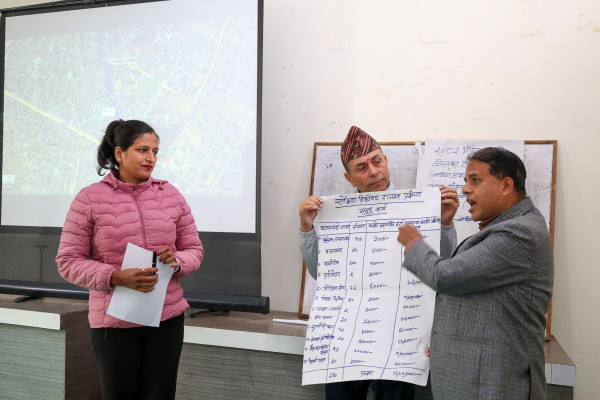
Cities 4 Women
CITIES 4 WOMEN: INCLUSIVE AND CLIMATE RESILIENT URBANIZATION IN NEPAL
Integrating Gender Sensitive and Climate Resilient Urban Planning for Sustainable Cities
|
Executing Entities: UN-Habitat, UNOPS, Cities Alliance. |
|
Partners: Lamkichuha (UN-Habitat), Chandragiri, Sunwal, Tansen, Birendranagar & Dhangadi (UNOPS) |
|
Funding agencies: European Union |
|
Collaboration: Ministry of Urban Development (MOUD) |
Background
Nepal is one of the most vulnerable countries to climate change facing increasing number of extreme weather events like landslides, flashfloods, extreme heat events and droughts. Rapid urbanization coupled with unplanned municipal infrastructure development exacerbates climate risk and vulnerabilities disproportionately affecting disadvantaged groups, particularly women and girls. Hence it is critical for the urban development in Nepal to ensure that no one is left behind in accessing the benefits, opportunities, and services provided by cities. In order to achieve the global SDGs by promoting inclusive and sustainable development of cities, the country is strongly committed to the New Urban Agenda for a shared vision of a better future.
The project Cities 4 Women: Inclusive and climate resilient urbanization in Nepal integrating Gender Sensitive and Climate Resilient Urban Planning for Sustainable Cities, funded by EU aims to increase the demand for gender responsive climate resilient public spaces, generated as proof of concept through enhanced urban planning and design capacities of municipalities. The project draws on the collective expertise of UN-Habitat, UNOPS, and City Alliance to jointly implement the project along with other stakeholders at the national and local levels. UN-Habitat leads implementation in Lamki Chuha municipality and preparation of national level framework and guideline. UNOPS is leading implementation in 5 municipalities and on knowledge dissemination.
Objectives:
- To create gender and climate responsive and inclusive public spaces in cities in Nepal
- To increase the demand for gender responsive climate resilient public space, generate proof of concept for participatory public space projects, enhance the urban planning and design capacity of municipalities, and review the legal framework.
Expected Outcomes and Proposed Activities:
Outcome 1: National and local governments follow a gender responsive approach in their urban planning and budgeting processes
- Develop a national gender responsive climate resilient development framework.
- Prepare a step-by-step municipal planning guideline for gender and climate responsive urban development.
- Conduct training of the national and municipal technical officials to internalize and implement framework and guideline.
Outcome 2: Women officials at the municipal level have leading roles including women’s voices in local planning and budgetary processes
- Socio-technical facilitation to review and analyze participation gaps in the 7-steps local planning and decision-making process.
- Conduct climate risk/vulnerability assessment of the target communities for informed decision-making.
- Prepare gender transformative participatory local decision-making manual (Cities Alliance).
- Co-design a gender and climate responsive and inclusive public space.
Outcome 3: Municipalities have increased the number of gender sensitive and climate resilience spatial projects within their planning process
- Support municipality to prepare and invest medium scale social infrastructure project packages.
- Co-finance on demonstration of gender and climate responsive public spaces.
Outcome 4: Municipalities and national knowledge institutions collaborate in generating and sharing knowledge on participatory and inclusive urban planning and gender and climate sensitive initiatives
- Disseminate knowledge products through established national and international platforms.
- Facilitate national peer-to-peer learning exchange and international exposure to the female elected representatives and officials.
- Urban planning studio programs for master’s degree students and master’s/ Ph.D. thesis grant.









